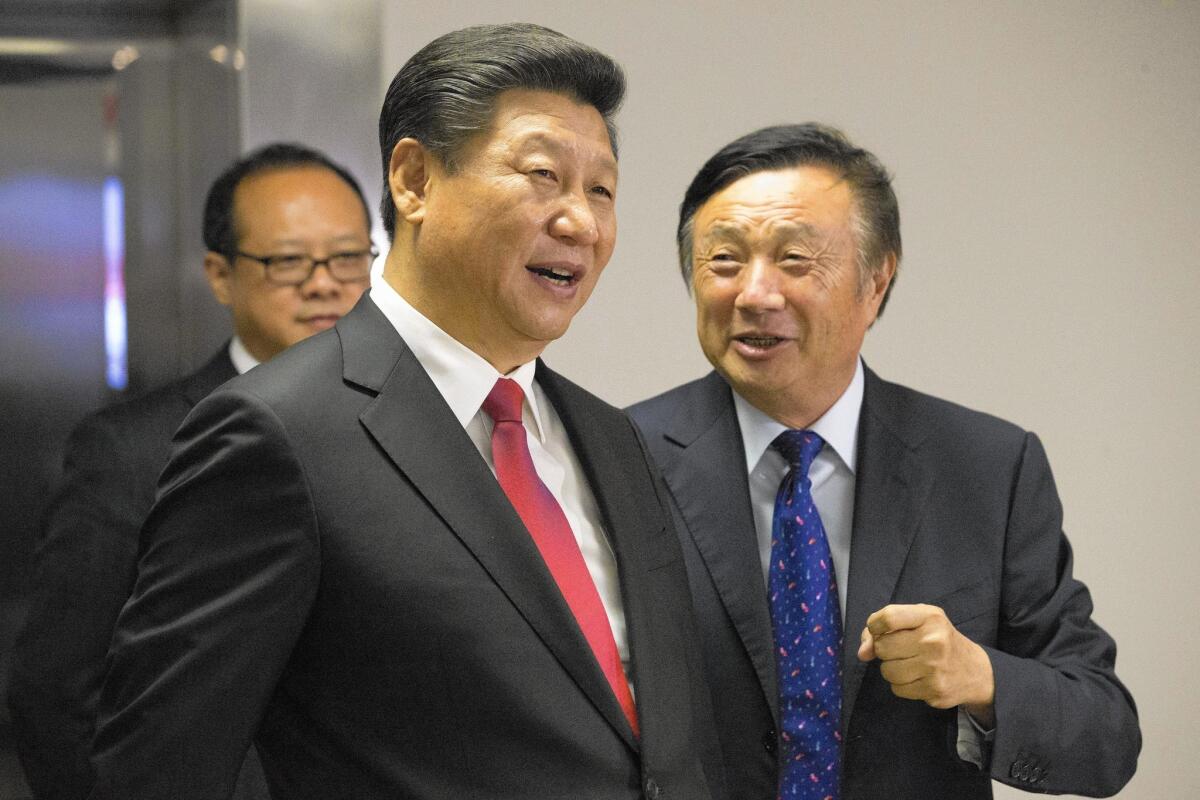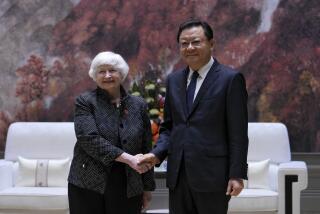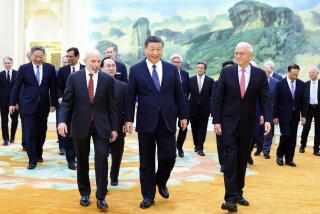China aims to set economic blueprint for next 5 years

Global nerves have calmed a bit about China’s economy since late summer, when gyrating mainland markets spooked investors worldwide and Beijing’s move to weaken the renminbi sparked concerns about currency wars. But the slowdown of the world’s second-largest economy is still a major worry. Starting Monday, China’s top leaders will gather for a key annual meeting, and the main focus will be the country’s next five-year economic plan. But other topics — from corruption to the one-child policy — may crop up as well. Here’s a quick look at what’s on the agenda.
What is this meeting and who’s coming?
The meeting’s name is a mouthful — the Fifth Plenum of the 18th Central Committee of the Communist Party of China — but it’s essentially a gathering of several hundred top leaders, including President Xi Jinping and Premier Li Keqiang. It will run through Thursday. The fourth plenum, held last October, focused on legal reforms.
What’s the five-year plan?
China has drafted five-year plans since 1953 to lay out strategies for fiscal and social development. This plan will cover the years 2016-2020. Chinese leaders are expected to lay out a target average annual economic growth rate. Many economists expect the target to be between 6% and 6.8%. That’s still faster than the U.S. and much of the rest of the world, but a significant slowdown from the double-digit annual increases China saw for much of the last quarter-century. China’s GDP grew at a 7% rate in the second quarter of this year.
“They will only reveal the major spirit of the plan, the overall guidelines and so forth,” said Willy Lam, a Hong Kong-based political commentator. “Not many details — the plan itself will still undergo one to two revisions and be announced [in final form] next March. But some comments on the economy are necessary because both Chinese and foreigners are worried about this downturn in the growth. They need to say something reassuring.”
Besides GDP targets, what other economic issues may be included?
Reforming state-run enterprises, promoting the service sector and new industries, upgrading manufacturing and further liberalization of the financial sector are all initiatives that might be addressed in the plan.
“The government has made considerable headway in addressing four serious challenges: corruption, environmental degradation, excessive local government debt and overcapacity,” said University of Hong Kong professor Xiao Geng in a commentary with Andrew Sheng, a former chairman of the Hong Kong Securities and Futures Commission. But to keep up momentum, they said, “the government must, as Xi put it, ‘gnaw even tough bones’ — that is, overcome vested interests that are resisting change.”
What other issues might crop up?
Some China-watchers speculate that further relaxation of China’s one-child policy may be in the offing. Chinese leaders are concerned that the nation’s low birth rate and aging population might exacerbate economic problems.
More babies could also help goose domestic consumption, which China wants to boost as it shifts dependence away from export manufacturing and government investment. China previously allowed couples who were both only children to have a second baby; in 2013 that was loosened to allow couples in which one parent was an only child to do so. But fewer eligible couples than anticipated have decided to expand their families. Some demographers are urging the government to make changes.
What about Xi’s anti-corruption campaign?
Ahead of the meeting, authorities announced new rules for Communist Party officials aimed at further reducing corruption. Among the new restrictions: no golfing and no “improper sexual relations.” And no “irresponsibly making comments about national policies that are damaging to party unity online or in publications and at seminars.”
Such new guidelines show Xi is determined to reinforce his anti-graft campaign — and further tighten his grip on power, said Lam. “This is a major step backward from the idea of intraparty democracy put forth by [former President] Hu Jintao,” he said. “This is a big step backwards and a reassertion of the Leninist principle of ‘democratic centralism’ … which is 100% centralism and 0% democratic.”
More to Read
Start your day right
Sign up for Essential California for news, features and recommendations from the L.A. Times and beyond in your inbox six days a week.
You may occasionally receive promotional content from the Los Angeles Times.







